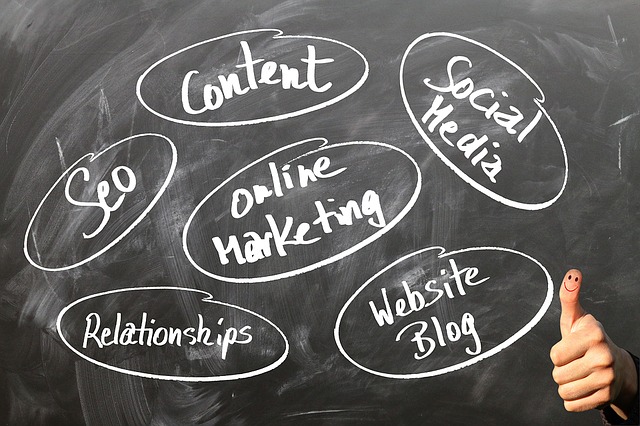
By employing ecommerce marketing techniques such as social media and search engine optimization, your online store has the capability to enhance brand exposure, boost sales, and expand within an extremely competitive field.
Continue reading to gain more insight into the most effective strategies for marketing an ecommerce website. Additionally, understand the significance of ecommerce digital marketing in relation to online businesses, and explore tangible instances from various ecommerce companies.
1. Search engine optimization (SEO)
If you are running an online store, it is crucial for customers to easily locate your website. Are you having difficulties in appearing high on search engine results? Utilizing search engine optimization (SEO) can assist in increasing traffic to your ecommerce website.
By targeting and identifying keywords and phrases used by shoppers to search for your products, you can enhance the volume of qualified traffic to your website. Ecommerce SEO simplifies the process of discovering and exploring your site for potential customers, irrespective of the time. Furthermore, optimizing your website not only enhances user experience but also attracts more targeted traffic.
Ecommerce stores greatly benefit from SEO due to the fact that customers are usually prepared to make a purchase when searching for a specific product. If you neglect this effective marketing strategy for ecommerce, your store may go unnoticed by potential customers. Enhancing the visibility of your website through ecommerce SEO significantly increases incoming leads and maximizes profits.
2. Pay-per-click ads (PPC)
If you are wondering why your ecommerce website needs pay-per-click advertising (PPC), even if you already rank for keywords organically, it is important to understand that PPC advertising is highly beneficial for driving traffic to your ecommerce website while you work on improving your organic rankings. Additionally, it serves as an effective marketing strategy specifically tailored for ecommerce businesses.
Unless you belong to an extremely specific industry with high levels of traffic and virtually no competition, it is likely that you will need to depend on PPC ads to generate traffic for your ecommerce website, especially in the initial stages of marketing.
By using Google Ads, you have the ability to configure your ads to appear specifically when individuals search for particular keywords. If your ads do not receive any clicks, you will not incur any costs. The outcomes can occur immediately, and pay-per-click (PPC) advertisements frequently generate enough revenue to cover their own expenses if you accurately select the appropriate keywords.
3. Social media marketing
Given that 71% of adults who are on the internet are active users of social media, there is a high likelihood that you can engage your target audience on platforms like Facebook, Twitter, YouTube, or similar social media sites.
Social media is considered as one of the most highly recommended marketing strategies for ecommerce websites, as it provides the perfect platform to promote your products, events, and promotions.
You can also utilize social media as a tool to foster customer feedback and cultivate a loyal following. In the event that customers appreciate your products, they are inclined to freely distribute your content on social media platforms. This action aids in establishing your ecommerce website as a reliable resource, and positive reviews enhance the credibility in the eyes of prospective customers.
Brands should engage an active audience by meeting consumers on social media in addition to utilizing strong SEO to enhance content visibility on SERPs.
Social media platforms are utilized by billions of individuals every month, enabling brands to establish genuine connections with their followers. Marketing teams can also make use of these platforms to respond to comments, share pertinent content, and furnish additional details about their company’s products.
In order to manage and distribute this content effectively, marketing teams should carefully choose the appropriate platforms. It is important to consider that Twitter users have distinct preferences in terms of content compared to Instagram users. Marketing teams should have a clear understanding of the platforms that their customer base is more likely to utilize and use those specific channels accordingly.
4. Content marketing
The creation and sharing of valuable content online is crucial for ecommerce companies. Quality content is highly favored by search engines, and distributing it online can enhance your rankings. Do not hesitate to try various forms of content as part of this ecommerce marketing approach.
While blogs can be beneficial, relying solely on them may not lead to desired outcomes. To enhance your blog content, you should also incorporate captivating infographics or downloadable guides. By offering valuable content to site visitors, you can enhance the likelihood of acquiring loyal customers and establish credibility as an expert in your field. This mutually beneficial scenario ensures success for all parties involved.
Marketing teams should incorporate content marketing into their e-commerce marketing strategies to bolster SEO and establish brand authority.
One way to develop an effective marketing strategy and generate relevant content about products is through the use of blogs. Blogs allow marketing teams to focus on important keywords that may not be suitable for product or category pages.
By addressing consumer needs, providing helpful solutions, building trust, and strengthening relationships, this content has the potential to directly cater to the needs of consumers. Consequently, blogs have the ability to enhance brand visibility and improve conversion rates among both new and existing customers.
Content marketing serves multiple purposes: it addresses customers’ inquiries, provides them with knowledge, conveys the company’s story, and ultimately influences them to make a purchase. Moreover, diverse forms of content such as videos, guides that can be downloaded, and user-generated content contribute to bolstering a brand’s reputation. Additionally, this content can be utilized to enrich the blog and attract more attention to the organization and its products or services.
5. Email marketing
One effective method of sharing your latest updates and posts, along with supporting other strategies in your ecommerce marketing plan, is through email if you have a well-developed content marketing strategy. Furthermore, you can utilize email to promote new products, provide coupons, and organize contests.
One way to enhance your ecommerce website is by incorporating a signup form, where visitors can input their email addresses in order to stay updated. Additionally, you might want to consider offering customers the option to subscribe to your email list during the checkout process.
Email marketing is a vital ecommerce marketing strategy that effectively generates traffic, clicks, and purchases – essential metrics for any ecommerce venture.
6. Customer loyalty programs
The implementation of customer loyalty programs can lead to an increase in revenue and the long-term retention of customers. It is important to note that loyal customers hold significant value as they have already engaged in previous purchases. By motivating customer loyalty and encouraging repeated purchases, marketing teams can enhance customer lifetime value (CLV) and foster the development of dedicated brand supporters.
Marketing teams have a range of loyalty programs to choose from, but those that are consistent and provide value to consumers tend to be the most successful. Loyalty programs also offer significant personalization advantages, as they allow for the collection of more consumer information and insights that can help determine the optimal timing for communication with these individuals.
Loyalty programs can strengthen the relationship between a business and a consumer by offering special deals, discounts, and sending birthday wishes.
7. Optimized product pages and checkout experiences
To enhance conversion rate optimization, it is essential to optimize the product pages on an e-commerce website. These pages serve the purpose of allowing visitors to conveniently view the product, acquire knowledge about its specifications or features, and proceed with the purchase.
By analyzing analytics data, product marketers have the ability to assess the pages that should be optimized for conversion in order to identify the sources of sales or the areas where sales are being lost. Additionally, these teams should enhance the checkout process to ensure user-friendliness and minimize the number of steps required for customers to finalize their purchases.
8. Retargeting
A retargeting strategy is an additional paid approach, complementing a PPC strategy, to entice individuals who have previously visited and showed interest in a website to visit it again. While PPC can attract new visitors to a website, retargeting focuses on tracking individuals who have already visited a page but did not complete a purchase.
By analyzing the website pages that are viewed, brands have the ability to create distinct audience lists. If an individual visits an e-commerce site and browses through different product pages, indicating their interest in those particular items, brands can then utilize their ad networks to display pertinent advertisements on other websites. These advertisements are designed to redirect users back to the specific product pages they previously visited, reaffirming the notion that purchasing the product would be beneficial.
9. Influencer marketing
The use of influencers for marketing is a strategy that is increasingly adopted by brands aiming to access a particular audience, leveraging someone who already holds the trust of the community. Influencers can be found across various markets and industries, ranging from tech blogs and YouTube channels focused on reviews, to lifestyle products and TikTok channels. By partnering with influencers, brands are able to engage with their followers.
Organizations can benefit from this approach, especially when they are launching new products. They can offer influencers free products, and in return, expect reviews, promotions, an external viewpoint on the product, and extended brand exposure. The specific engagement strategies with influencers may involve covering expenses related to the products or sponsorships, depending on the influencer’s terms.
When developing an e-commerce marketing strategy, marketing teams should prioritize influencer marketing as an effective channel. This is because influencer marketing entails fostering positive relationships with influencers and guarantees that they can endorse or promote products in a positive manner.
10. SMS marketing
SMS texting is an increasingly popular and expanding medium for e-commerce marketing strategies. Alongside other tactics such as developing appropriate content, sending emails, and utilizing paid channels, social media, or influencers for promotion, marketing teams must acknowledge the fact that consumers predominantly use their phones.
In order to utilize an SMS marketing strategy, brands can gather phone number information from consumers and send regular and well-timed offers to both potential customers and existing ones.
SMS marketing is utilized by online shopping retailers to great success. This strategy enables them to seize cross-sell and upsell prospects, recover abandoned carts, and deliver exclusive offers or promotions in order to boost sales.

